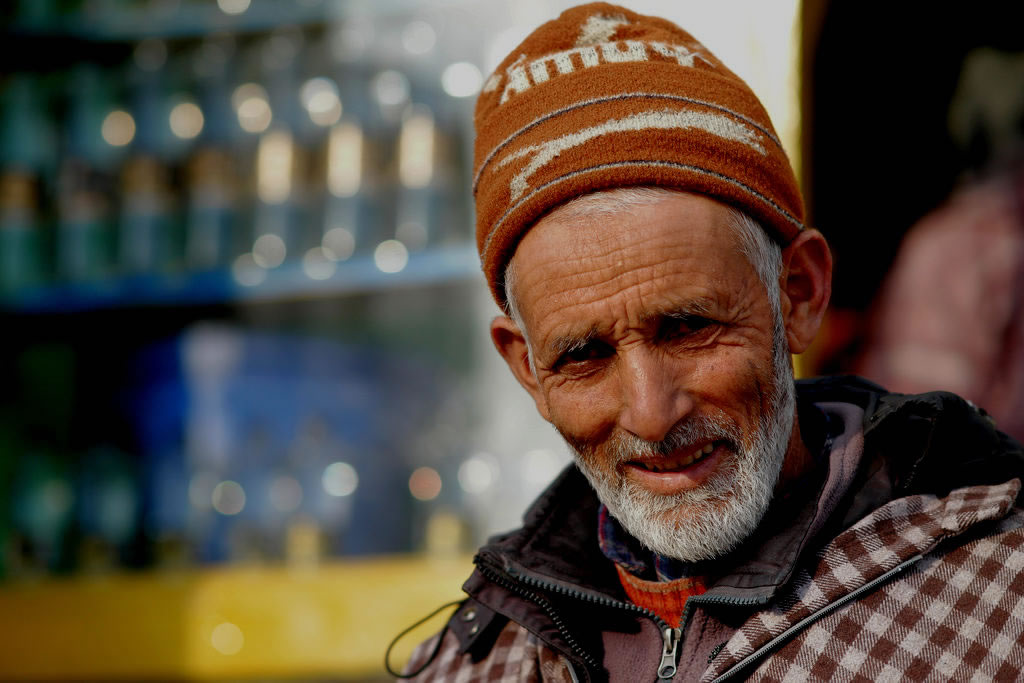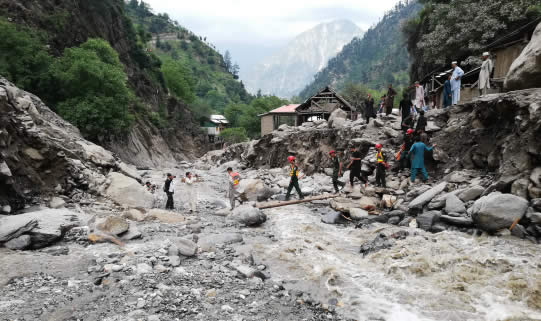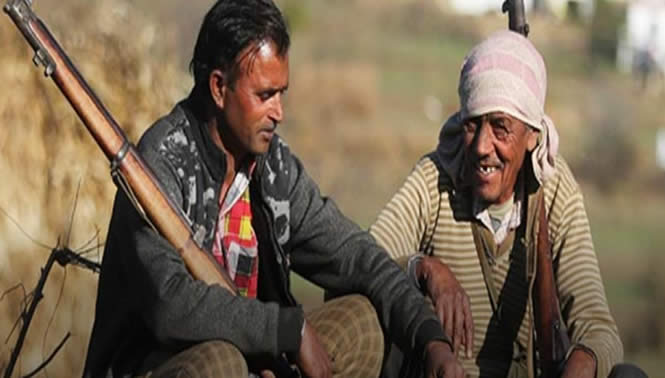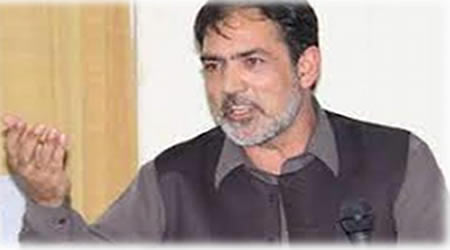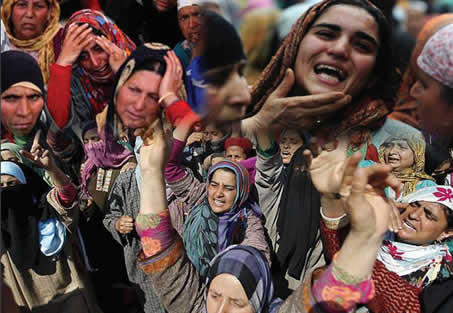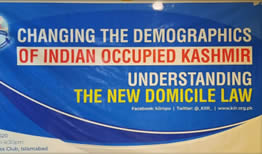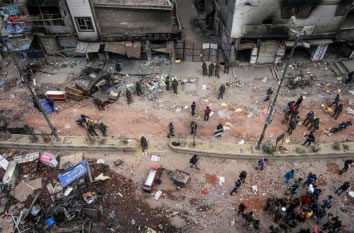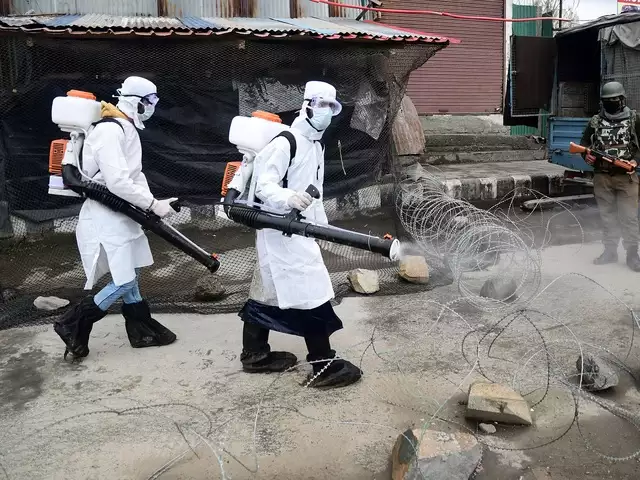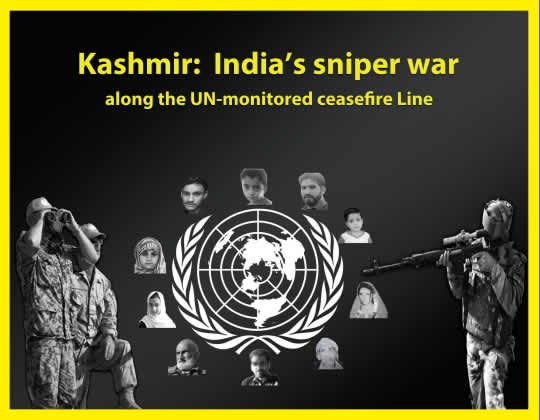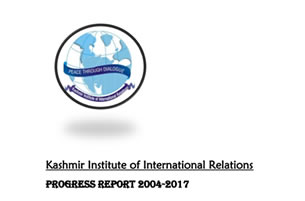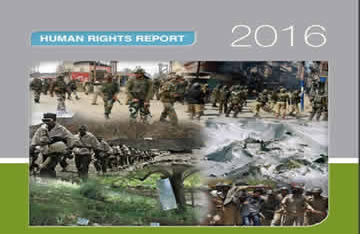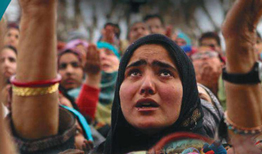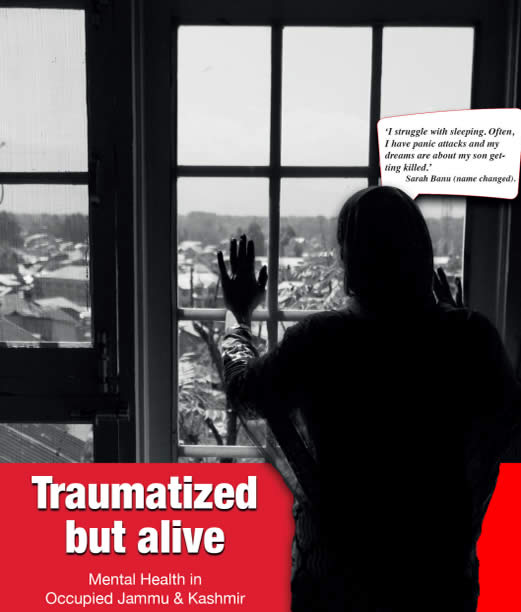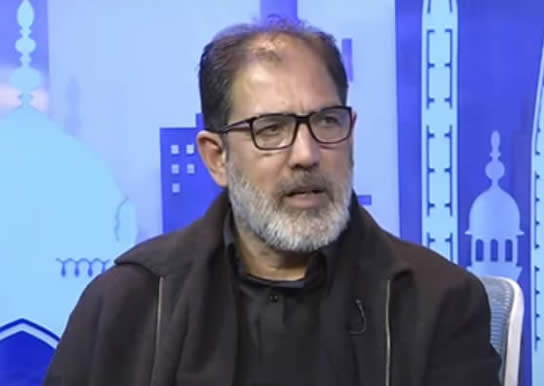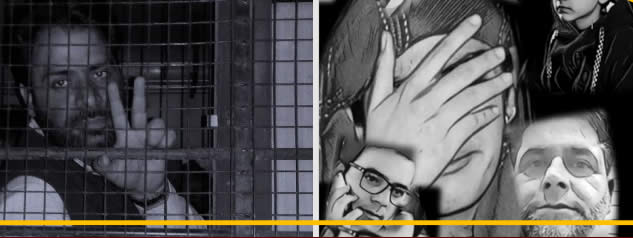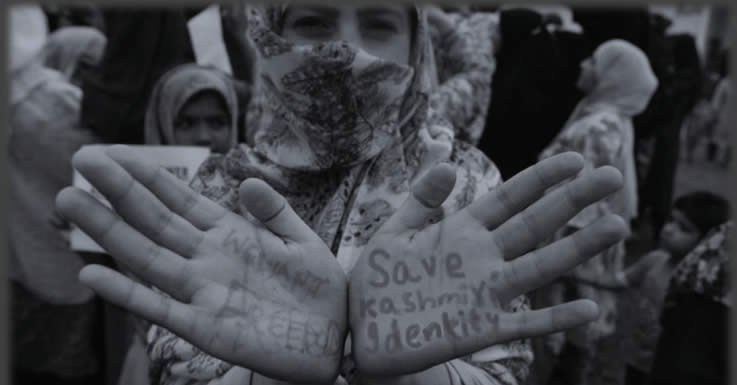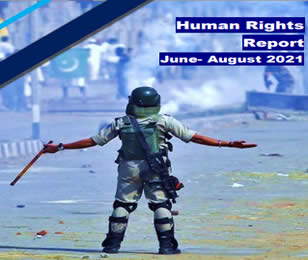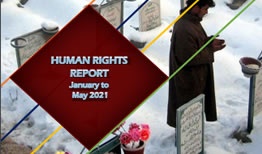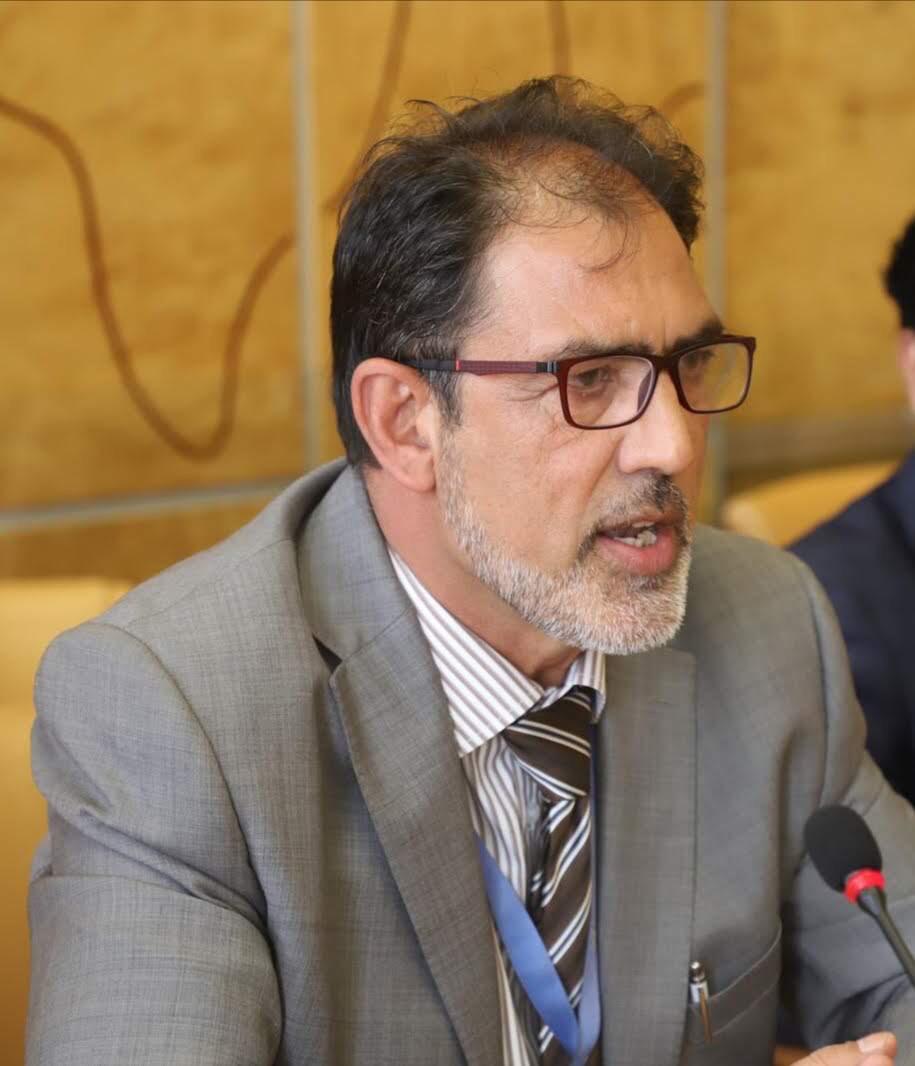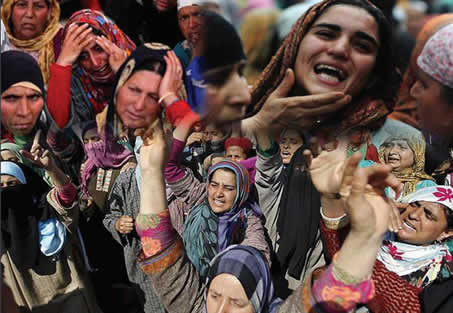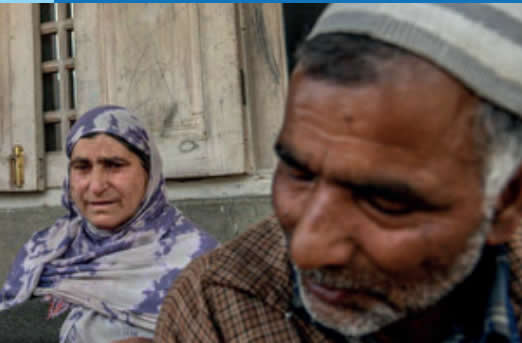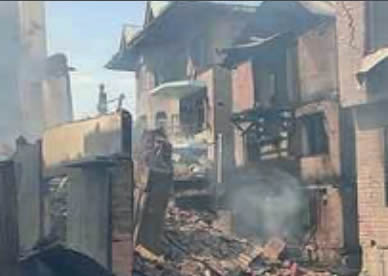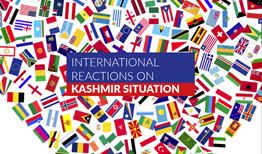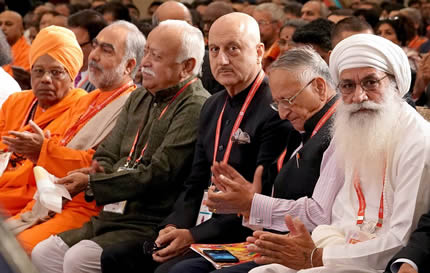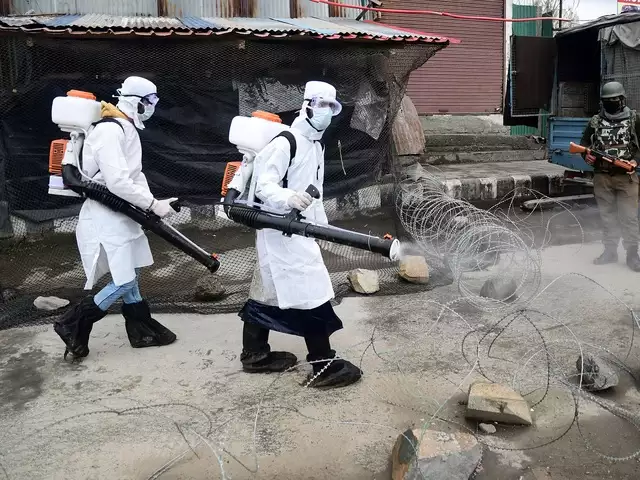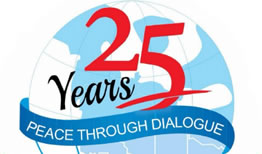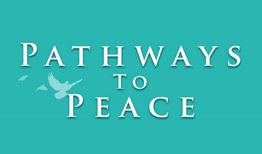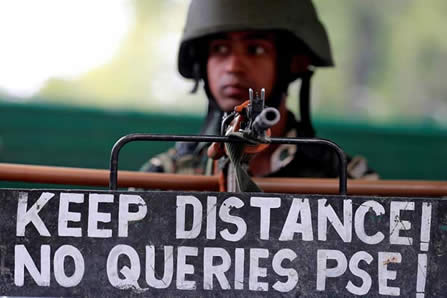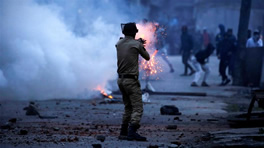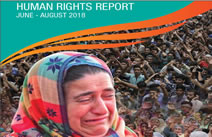Ripple effects of invoking draconian laws
“While violence and uncertainty continues to dominate every facet of life in Kashmir, civil rights activists, politicians and youth are imprisoned and their voices stifled by draconian measures taken under the guise of national security. Suppression of dissent has become endemic, and citizens are subjected to surveillance and censorship that undermine fundamental freedoms”
Torture and Other Cruel, Inhumane or Degrading Treatment or Punishment (CAT) and International Convention on Civil and Political Rights (ICCPR) to which India is a signatory.
Indiscriminate application of draconian laws
Draconian laws are used by India as tools for suppressing dissent, stifling free speech, and controlling political opposition. States have a long history of employing draconian laws as a means to stifle dissent, suppress people’s voices, and quash their legitimate political demands. By the way the Indian state, which still suffers from colonial hangover, is no longer an exception when it comes to the use of such colonial-era tactics. Over the years, the respective Indian governments implemented a ruthless and repressive legal regime designed to strengthen its colonial grip over the territory of Kashmir and suppress indigenous population.
The harsh laws enacted in the name of “national security” in Kashmir were used to justify surveillance, detention, and repression of dissent. The so-called anti-terror laws, on the other hand, gave sweeping powers to government authorities granting them blanket impunity to target rights groups, activists, or dissenters and putting limitations on fundamental rights, such as freedom of speech, assembly, or association. These laws also empowered the authorities to stifle criticism of the government and its policies, maintain the status quo an prevent marginalized groups from advocating for their rights.
The world human rights bodies have consistently raised alarm over misuse anti-terror laws in Kashmir region, where authorities have consistently and without consequence abused and exploited these laws for decades.
Decried for their vague language, broad scope, and potential for abuse, the widespread application of these notorious laws has resulted in a decline in democratic freedoms and human rights not only in Kashmir but other parts of India. In Kashmir, these laws have been arbitrarily used to detain political leaders, activists, and journalists without fair trial, stifle protests and demonstrations, censor free speech and expression and silence opposing voices.
Human Rights Implications Invoking anti-terrorism laws have far reaching human rights implications.
The ripple effects of these laws goes beyond just individuals. They are also responsible for shrinking the civic space in Kashmir through overregulation and arbitrary and disproportionate targeting of opposition and civil society activists. Arbitrary arrests, no-fly lists, banning of political and charitable organizations, increasing surveillance and deteriorating personal privacy along with the blurring of lines between lawful dissent and illegal activities are part of the legacy of these laws. The Unlawful Activities (Prevention) Act (UAPA) is a controversial piece of legislation in India that has significant implications for civil liberties and human rights, particularly in the context of Jammu and Kashmir.
Originally enacted in 1967 to combat secessionism and terrorism, the UAPA has been amended multiple times, with the most recent amendments in 2019 expanding its scope and powers. This article explores the human rights implications of the UAPA in Jammu and Kashmir, focusing on issues of arbitrary detention, freedom of expression, and the right to a fair trial.
Impact and implications of UAPA
1. Arbitrary Detention
One of the most concerning aspects of the UAPA is its potential for arbitrary detention. The law allows for the arrest of individuals on the grounds of suspicion of involvement in unlawful activities, which can include a broad range of actions deemed to threaten the integrity and sovereignty of India. In Jammu and Kashmir, where the security situation is fragile and the political climate is tense, the application of the UAPA has led to widespread arrests of individuals, often without substantial evidence. Under the UAPA, individuals can be detained for extended periods—up to 180 days—without formal charges.
This provision has been criticized for undermining the right to liberty and due process. In practice, many detainees are held for long periods without trial, leading to a backlog of cases and prolonged uncertainty for families. The lack of transparency in the detention process raises serious concerns about the potential for abuse and the violation of human rights.
1.1 Suppression of Freedom of Expression
The UAPA has been used to stifle dissent and suppress freedom of expression in Jammu and Kashmir. Activists, journalists, and ordinary citizens who voice their opinions against the state or question its policies often find themselves targeted under this law. The broad and vague definitions of “unlawful activities” allow authorities to interpret dissent as a threat to national security, leading to the criminalization of legitimate political expression. For instance, social media has become a battleground for free speech in Jammu and Kashmir. Many individuals have been arrested for posting content that is critical of the government or supportive of separatist movements. The chilling effect of the UAPA on free expression is profound, as individuals become increasingly wary of sharing their views, fearing repercussions.
This environment of fear not only stifles public discourse but also undermines the democratic principles of a pluralistic society. 1.2 Right to a Fair Trial The UAPA poses significant challenges to the right to a fair trial, a fundamental aspect of human rights. The law allows for the designation of certain individuals as “terrorists” based on the discretion of authorities, which can lead to prejudgment and bias against the accused. Once labeled as a terrorist, individuals may find it exceedingly difficult to receive a fair hearing, as public perception and media narratives often skew against them.
Moreover, the UAPA permits the use of confessions obtained during police custody as evidence, which raises concerns about coercion and torture. In a region like Jammu and Kashmir, where reports of human rights abuses by security forces are prevalent, the risk of obtaining false confessions under duress is significant. This undermines the integrity of the judicial process and can lead to wrongful convictions.
1.3 Impact on Civil Society and Human Rights Defenders
The implementation of the UAPA has had a chilling effect on civil society organizations and human rights defenders in Jammu and Kashmir. Many NGOs and activists working to document human rights violations or advocate for the rights of marginalized communities have faced intimidation and harassment under this law. The fear of being labeled as “anti-national” or “terrorist sympathizers” stifles advocacy efforts and discourages individuals from speaking out against abuses.
Human rights defenders often find themselves in precarious positions, facing legal challenges and threats to their safety. The UAPA has been used to target those who seek to hold the government accountable, effectively creating an environment where dissent is not tolerated. This suppression of civil society not only undermines human rights but also weakens the democratic fabric of society.
1.4. International Criticism and Accountability
The human rights implications of the UAPA in Jammu and Kashmir have drawn criticism from various international organizations and human rights advocates. Reports from entities such as Amnesty International and Human Rights Watch have highlighted the misuse of the UAPA to target dissent and suppress freedoms. Calls for accountability and reform of the UAPA have been made, emphasizing the need to align Indian laws with international human rights standards.
The international community has a critical role to play in addressing these human rights concerns. Diplomatic pressure, public advocacy, and engagement with civil society organizations can help amplify the voices of those affected by the UAPA. Moreover, supporting efforts to document human rights abuses and promote accountability is essential for fostering a culture of respect for human rights in Jammu and Kashmir.
'
2. Implications of PSA on Kashmiri society
The Public Safety Act (PSA) of Jammu and Kashmir, enacted in 1978, has been a subject of significant human rights scrutiny and debate. Its implications for human rights in the region are multifaceted and have raised concerns among various stakeholders, including human rights organizations, legal experts, and civil society. Here are some key human rights implications of the PSA in Kashmir:
2.1. Detention without Trial: The PSA allows authorities to detain individuals without trial for up to two years. This provision has lead to prolonged detention of Kashmiri prisoners who are languishing in jails without adequate legal recourse and right to a fair trial and due process.
2. 2. Arbitrary Arrests: The law has been criticized for enabling arbitrary arrests. The authorities at the helm of affairs in Jammu and Kashmir have used this law to detain people and suppress dissent and dissenters.
2. 3. Lack of Transparency: The process of detention under the PSA is often opaque. Detainees are not informed of the reasons for their detention, and there is limited access to legal representation, which further undermine the detainees’ rights.
2. 4. Impact on Freedom of Expression: The PSA has been used to silence dissent and curb freedom of expression. Activists, journalists, and political opponents have faced detention under the act for expressing views that are critical of the government or its policies.
2. 5. Psychological Impact: The fear of arbitrary detention and the trauma associated with it have severe psychological effects on individuals and communities living in the region. Families of detainees often face stigma and social isolation, exacerbating their suffering.
2. 6. Judicial Oversight and Accountability: The effectiveness of judicial oversight in cases of detention under the PSA has been questioned. Courts failure to provide adequate remedies for individuals challenging their detention, lead to a lack of accountability for abuses.
2. 7. Human Rights Violations: Reports from various human rights organizations indicate that the PSA has been associated with widespread human rights violations, including torture and inhumane treatment of detainees. These practices contravene international human rights standards.
2.8. International Scrutiny: The use of the PSA has drawn international criticism, with calls for reforms to ensure compliance with human rights standards. The situation in Kashmir has been a focal point in discussions both at regional and international level.
2.9. Calls for Repeal or Reform: Human rights advocates and organizations have called for the repeal or significant reform of the PSA to align it with international human rights norms, emphasizing the need for legal frameworks that protect rather than undermine individual rights. The misuse of the PSA (Public Safety Act) by Indian authorities in Kashmir raises significant human rights concerns, particularly regarding detention practices, freedom of expression, and the overall rule of law. Addressing these issues requires a commitment to upholding human rights standards and ensuring accountability for violations.
3. Implications of AFSPA
The Armed Forces Special Powers Act (AFSPA) has been a highly controversial law in India, particularly in regions like Jammu and Kashmir (J&K). Enacted in 1958, AFSPA grants special powers to the armed forces in areas deemed “disturbed,” allowing for the use of force, arrest without warrant, and immunity from prosecution for actions taken in the course of their duty. The impact of AFSPA on human rights in Jammu and Kashmir has been profound and multifaceted:
3.1. Violations of Civil Liberties:
• Extrajudicial Killings: There have been numerous allegations of extrajudicial killings by security forces operating under AFSPA. Reports from human rights organizations indicate that civilians have often been caught in the crossfire or targeted without due process.
• Arbitrary Detention: The act allows for the detention of individuals without a warrant, leading to instances of arbitrary arrests. Many individuals have been detained for extended periods without formal charges, raising concerns about due process.
3. 2. Impunity for Security Forces:
• Legal Immunity: AFSPA provides legal immunity to armed forces personnel for actions taken in “good faith” during operations. This has led to a culture of impunity, where security personnel are rarely held accountable for human rights violations.
• Lack of Accountability: Complaints of human rights abuses often go uninvestigated, and when they do, the processes are seen as inadequate. Victims and their families face significant barriers in seeking justice.
3.3. Impact on Daily Life:
• Psychological Trauma: The presence of armed forces and the fear of violence contribute to a pervasive atmosphere of fear and anxiety among the local population. Many residents experience psychological trauma due to military operations and the threat of violence.
• Restrictions on Movement: Checkpoints, curfews, and military operations can severely restrict the movement of civilians, impacting their ability to access education, healthcare, and livelihoods.
3. 4. Suppression of Freedom of Expression:
• Censorship and Intimidation: Journalists and activists in Jammu and Kashmir often face intimidation, harassment, and censorship. Reporting on human rights abuses can lead to reprisals from security forces, stifling freedom of expression.
• Crackdown on Protests: Peaceful protests against AFSPA and other military actions are often met with force, leading to further violations of the right to assembly and expression.
3. 5. Socio-economic Consequences:
• Disruption of Education and Employment: The ongoing conflict and military presence disrupt educational institutions and economic activities, leading to long-term socio-economic challenges for th region’s youth.
• Migration and Displacement: Continuous violence and instability have led to internal displacement and migration, further complicating the socio-economic landscape of J&K.
Calls for Repeal and Reform:
National and International Criticism: Human rights organizations, both national and international, have called for repeal and reform of these laws but Indian government had miserably failed to review or repeal the law, despite repeated recommendations from several government-appointed commissions, UN bodies, and experts, and national and international rights groups. Since the law came into force in Kashmir in 19901, the Indian government has not granted permission to prosecute any security force personnel in civilian courts
List of black laws enforced in Kashmir
JAMMU & KASHMIR PUBLIC SAFETY ACT, 1978 The Act promulgated in 1978 (amended in 1987 and 1990) empowers the State government to detain a person without trial2 for two years under the pretext of maintenance of public order. The Act, rightly censored as a lawless law, falls short of the internationally accepted standards of justice, including equality under the law, the right to appear before a Magistrate within 24 hours of being arrested, a fair public trial, access to legal representation, the opportunity to cross examine witnesses, the ability to appeal a conviction, and protection from being tried under retroactively applied laws. - The act has been grossly and consistently violated by the authorities at the helm of affairs in Kashmir.
- Those arrested and booked under the PSA are not informed of the reasons of their arrest
- They are not allowed to meet their relatives and counsels.
- The amendments made in the act in mid 1990s enabled the State machinery to keep the detainees in the jails of India, outside the State.
- Under Section 22 of the Act, any legal proceeding against officials for acts “done in good faith” are also disallowed. Since 1990 thousands of people have over the years been detained under the Act.
JAMMU & KASHMIR DISTURBED AREAS ACT, 1990
Under the Act, the whole or part of the State can be declared disturbed area by the Indian Government or the Governor. The entire valley of Kashmir including two Districts of Jammu located near LoC have since been declared disturbed areas.
- Under the act (DAA), an official of the lowest rank (Head Constable) is allowed to pass order to use force or shoot (and kill) under the pretext of maintaining the public order.
- The Act gives the police extraordinary powers of arrest and detention.
- Section 6 gives legal immunity to persons acting under this Act; no suit or prosecution can be instituted, except with the previous sanction of the government against any person in respect of anything done or purported to be done in exercise of the powers conferred by the Act.
TERRORIST AND DISRUPTIVE ACTIVITIES ACT (TADA)
The Act enforced in 1985 (amended in 1987) gives security forces and armed forces special powers for use of force. The amendments made in the act in 1987 had made it even tougher. It was widely used for unauthorized administrative detention without formal charges or trial for up-to one year.
- Under the Act, involvement in, or preparation for, disruptive activities attracts severe punishment up-to life imprisonment.
- Arrests can be made even on suspicion of committing “disruptive activities”, defined as “any action taken, whether by act by speech or through any other media ….. which questions, disrupts or is intended to disrupt, whether directly or indirectly, the sovereignty and territorial integrity of India, or which is intended to bring about or support any claim…… for the cession of any part of India from the Union……”
THE ARMED FORCES SPECIAL POWERS ACT (AFSPA)
The Armed Forces Special Powers Act, introduced in July, 1990, in Kashmir grants sweeping powers to the army and paramilitary forces under Section 4 (C) of this Act.
- Under this act the armed forces can be used in aid of civil authorities
- The act empowers a non-commissioned officer to search any place, stop/seize any vehicle, fire at any
person (and kill), or arrest him even on the basis of suspicion with no obligation to inform him of the grounds thereof.
- It gives the Indian security forces sweeping powers that facilitate arbitrary arrests and detention and extra judicial executions as well as destruction of property.
- Under Section 7 of the Act, the security forces are given an immunity from prosecution for any act committed by them.
PREVENTION OF TERRORISM ACT (POTA), 2002
The Prevention of Terrorism Ordinance (POTA), promulgated on March 26, 2002. The POTA granted the Indian forces with extra ordinary powers.
- Under the law, any act committed with a lethal weapon was termed terrorist act. The suspects could be detained for 3 months without framing charges against them and for another 3 months, if allowed by a special Judge.
- The offences under the POTA included;
- Inviting support for an alleged “terrorist organisation”
- Addressing a gathering of sympathizers (of a terrorist organisation) and arranging, helping or assisting to arrange a meeting in which support for any “terrorist organisation” or its activities is expressed.
- The law empowered government authorities to seize or attach properties of the alleged terrorists, terrorist organisations and their sympathies.
UNLAWFUL ACTIVITIES (PREVENTION) AMENDMENT ORDINANCE 2004
The Ordinance was passed by the Indian President in 2004 and was implemented forthwith. It provides extraordinary powers to armed forces and other law enforcement agencies, similar to those previously provided by the POTA. In addition to the above-mentioned measures, the laws and ordinances regarding other disturbed parts of India can also be applied in occupied Kashmir.
THE NATIONAL SECURITY ACT (NSA)
Under the NSA, a person can be detained without charge or trial for upto one year to prevent him from acting in a manner prejudicial to state security, the maintenance of public order or relations with a foreign power.
OFFICIAL SECRETS ACT (OSA)
Under the Official Secrets Act (OSA), the Government may restrict publication of sensitive stories. But the Government interprets this broadly to suppress criticism of its policies.
NEWSPAPERS INCITEMENTS TO OFFENCES ACT
The Newspapers Incitements to Offences Act, 1971 remains in effect in Jammu and Kashmir. Under the Act, a District Magistrate may prohibit the publishing of material resulting in “incitement to murder” or “any act of violence”.
CRIMINAL PROCEDURE CODE
The Criminal Procedure Code provides for an open trial in most cases, but it allows exceptions in proceedings involving official secret trials in which statements prejudicial to the safety of the State might be made, or under provisions of special security legislation. The authorities enjoy special powers to search and arrest without a warrant. If required, the public assemblies can be banned and a curfew can also be imposed.
INDIAN TELEGRAPH ACT
The Indian Telegraph Act authorizes the surveillance of communications, including monitoring telephone conversations and intercepting personal mail, in case of public emergency or “in the interest of the public safety or tranquility”.
In addition to these draconian laws the following acts are also in place in Kashmir since several decades.
- Enemy Agent Ordinance 1948
- The Egress and Internal Movement (Control) Ordinance, 1948
- Prevention of Unlawful Activities, 1963
- Prevention of Subversion and Sabotage Act, 1965
World Opinion
Enforcement of draconian laws in Kashmir by the Indian state had evoked widespread condemnation with both the regional and international rights bodies denouncing these laws as highly reprehensible. These grossly abused and misused laws have been under scrutiny for variety of reasons. Human rights organizations such as the Asian Federation Against Involuntary Disappearances (AFAD), Asian Forum for Human Rights and Development (FORUM-ASIA), and CIVICUS: World Alliance for Citizen Participation have expressed concerns over the human rights situation in Kashmir and even the UN experts have raised concerns about the Unlawful Activities Prevention Act (UAPA), stating that it violates international human rights standards.
Moreover, organizations like Front Line Defenders, FIDH (International Federation for Human Rights), and World Organisation against Torture (OMCT) have also criticized the enforcement of these laws in Kashmir3. These organizations have called for the repeal of these laws, the release of detained human rights defenders, and an end to the harassment of civil society organizations in Kashmir. The UN Working Group on Arbitrary Detention (WGAD) has also called for the immediate release of human rights defenders detained under this law4.
Human Rights Watch Report 2008 India’s Armed Forces Special Powers Act has been used to violate fundamental freedoms for 50 years and should be repealed. The report, “Getting Away With Murder: 50 years of the Armed Forces Special Powers Act,” describes how the Armed Forces Special Powers Act, or AFSPA, has become a tool of state abuse, oppression, and discrimination. India: Briefing5 on the Armed Forces (Special Powers) Act The Armed Forces (Special Powers) Act, 1958 (AFSPA) a law operative in “disturbed areas”, including Jammu Kashmir, has facilitated grave human rights abuses, including extrajudicial execution, “disappearance”, rape and torture by bestowing sweeping powers on the armed forces in the region. The Act violates non-derogable provisions of international human rights law, including the right to life, the right to remedy and the rights to be free from arbitrary deprivation of liberty and from torture and cruel, inhuman or degrading treatment or punishment (ill-treatment) as enshrined in the International Covenant on Civil and Political Rights (ICCPR), to which India is a state party since 1979, and other treaties and standards.
'
Amnesty International calls for repeal6 of AFSPA
Amnesty International has also observed that the Armed Forces (Special Powers) Acts have allowed violations of non-derogable human rights, under international human rights law, as provided in the International Covenant on Civil and Political Rights (ICCPR), to which India is a state party. Among these rights are the right to life and freedom from torture and other cruel, inhuman or degrading treatment or punishment. In response to India’s most recent report on compliance with the ICCPR, the UN Human Rights Committee in July 1997 also raised concerns at the continued reliance on special powers under the AFSPA.
Amnesty International reiterates its call for the repeal of the Armed Forces (Special Powers) Act, 1958 and the Armed Forces (Jammu and Kashmir) Special Powers Act, 1990. The Armed Forces (Special Powers) Act violates provisions of International human rights law, including the right to life, the right to remedy and the rights to be free from arbitrary deprivation of liberty and from torture and cruel inhuman or degrading treatment or punishment. Amnesty International is concerned that torture and illtreatment are routinely inflicted in areas where the AFSPA is in force on account of the wide powers given to security forces deployed in “disturbed areas” and the expectation of impunity which it generates among soldiers and which, unfortunately, is often fulfilled.
UN Human Rights Committee
The powers of the TADA and the Armed Forces Special Power Act are incompatible with the state obligation to uphold and protect human rights, in particular the right to life. (UN Human Rights Committee) Wide powers of arrest granted under TADA, combined with the absence of fundamental legal safeguards for detainees, create a climate, which encourages abuse of power and facilitates illegal and secret detention. (Amnesty International)
TADA the most notorious law in force in J&K: Amnesty International7 While the regular laws in force in India are not fully in consonance with international human rights standards, several laws in operation in Jammu and Kashmir facilitate human rights violations and the impunity with which they are perpetrated by inadequately safeguarding the rights of those under arrest and detention. One of the most notorious laws in force in the state was the Terrorism and Disruptive, Activities (Prevention) Act (TADA), 1987 which gave security forces and armed forces special powers in the use of force, arrest and detention. US Congress findings8 on detentions under special laws
The special and preventive detention laws most frequently cited by human rights organizations are the Terrorist and Disruptive Activities (Prevention) Act (TADA) of 1987, the National Security Act of 1980, the Armed Forces (Punjab and Chandigarh) Special Powers Act of 1983, the Armed Forces (Jammu and Kashmir) Special Powers Act of 1990, and the Jammu and Kashmir Public Safety Act of 1978. - Abuses by the military and police forces of India are particularly widespread in the states of Punjab, Assam, Manipur, Nagaland, and the portion of the disputed territory of Jammu and Kashmir under the control of the Government of India. - Many provisions of TADA contravene important international human rights standards, especially the right to liberty and security, to a fair trial, freedom of expression and the right not to be tortured.(Amnesty International)
Global outrage over rampant
misuse of anti-terror lawsEven though the Indian governments have managed to evade international scrutiny due to the continued influence of realpolitik in global politics. However, there are still many organizations, individuals, and countries that have led a relentless campaign advocating for human rights in India and Kashmir. Many groups, such as Amnesty International, Human Rights Watch, Jammu and Kashmir Coalition of Civil Society, and International Federation for Human Rights, have submitted reports to human rights bodies or the UN Commissioner for Human Rights regarding the human rights conditions in Kashmir.
These groups along with Kashmiri activists have submitted reports, written and oral statements about the dire situation and sought independent investigations and accountability for abuses that have taken place in Indian held territory of Jammu and Kashmir. Earlier, the UN Special Rapporteurs have also criticized India for its abuse of draconian laws, particularly in the context of Kashmir. The former Special Rapporteur9 on Torture, Nils Melzer, David Kaye10, the former Special Rapporteur on Freedom of Expression, Mary Lawlor, the Special Rapporteur on Human Rights Defenders, and Agnes Callamard, the former Special Rapporteur on Extrajudicial Executions, the current special rapporteur Morris Tidbal criticized the harassment and intimidation of human rights defenders in Kashmir11.
Ahead of Indian delegation’s appearance before the UN’s Human Rights Committee in July this year (2024), in as many as 24 joint communications special rapporteurs had raised their concern over reported extrajudicial killings, arbitrary detentions, destruction of property, use of excessive force and misuse of draconian laws by India and have urged for thorough investigations into these incidents. Before this crucial meeting, CIVICUS12-a global alliance of civil society organisations and activists dedicated to strengthening citizen action and civil society, had submitted a detailed report to the Committee highlighting the plight of HRDs and journalists in Kashmir and declining state of civic space and human rights in the region.
India on UN’s radar over abuse
and overuse of anti-terror lawsDuring the fourth periodic review by the Human Rights Committee held in July 2024, the UN experts persistently raised questions about the lack of implementation of India's comprehensive constitutional and legal framework for protecting human rights and reported violence against religious minorities and misuse of terror laws.
The experts specifically mentioned the use of Jammu and Kashmir Public Safety Act and J&K Public Security Act, grant of extensive powers to executive bodies to investigate and seize property based on suspicions of “terrorist” activities, undue censorship of online content, frequent suspension of mobile internet services in Jammu and Kashmir, and prosecution of persons for criticism of the Government online and prosecution of members of the armed forces.
Conclusion
The Unlawful Activities (Prevention) Act (UAPA) has profound implications for human rights in Jammu and Kashmir. Its provisions for arbitrary detention, suppression of freedom of expression, and challenges to the Since the enforcement of the Public Safety Act, there
had not been a single prosecution of members of the armed forces, although there had been over 1,500 complaints of human rights abuses by armed forces personnel. How was the State party ensuring accountability for the armed forces? What amendments would be made to counter-terrorism laws to ensure compliance with the Covenant? right to a fair trial raise serious concerns about the protection of civil liberties in the region. The law has been used as a tool to silence dissent and target those who seek to advocate for justice and accountability.
Addressing the human rights implications of the UAPA requires a comprehensive approach that involves legal reform, accountability for abuses, and the protection of civil society and human rights defenders. Upholding human rights is not only essential for the people of Jammu and Kashmir but also for the integrity of democratic governance in India as a whole. As the situation continues to evolve, it is imperative that the voices of those affected by the UAPA are heard and that their rights are upheld.
Glossary
- AI: Amnesty International
- APDP: Association of Parents of Disappeared Persons
- AFSPA: Armed Forces Special Powers Act
- FIDH: International Federation for Human Rights
- GoI: Government of India
- HR: Human Rights
- HRD: Human Right Defender
- HRW: Human Rights Watch (HRW)
- IoK: Indian Occupied Kashmir
- J&K: Jammu and Kashmir (the territory under India’s illegal occupation)
- JKCCS : Jammu and Kashmir Coalition of Civil Society
- NSA: National Security Act (NSA)
- NIA: National Investigation Agency (NIA)
- PSA: The Public Safety Act (PSA)
- POTA: Prevention of Terrorism Act
- UDHR: Universal Declaration of Human Rights
- UNHRC: United Nation Human Rights Council
- UN: United Nations
- SIA: State Investigation Agency (SIA)
- SAS: Shri Amarnath Shrine
- UAPA: Unlawful Activities Prevention Act (UAPA)
Related Reports
